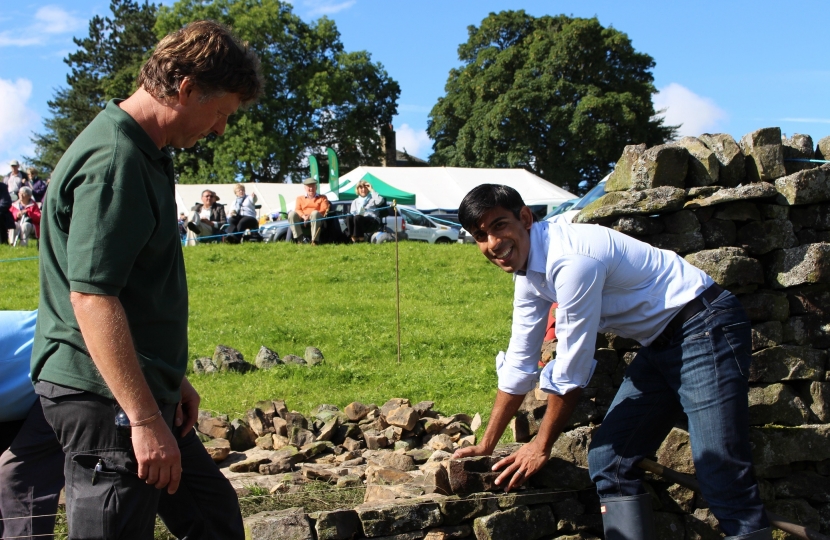
LIKE me, many of you will have spent some of your summer holidays in the iconic landscapes of the Yorkshire Dales and North York Moors.
While we are captivated by the natural beauty of our two North Yorkshire national parks, in truth there is nothing truly natural about this world-renowned countryside that we and so many others from around the world enjoy.
Almost every aspect of the rolling hills and dales has been crafted, to some degree, by man and, more specifically, farmers.
One of most obvious features whose absence would make the northern hills, particularly the Yorkshire Dales, unrecognisable are dry stone walls.
The most recent estimates of the length of dry stone walling in the UK suggest that there is about 78,000 miles stretching across the countryside and 13,000 miles them alone are criss-crossing North Yorkshire.
I’m minded to suggest that Richmond has the greatest length of walling of any Parliamentary constituency but some of my Cumbrian colleagues in Westminster might contest that!
Quite rightly, these walls are highly valued and yet their future is by no means secure for a number of reasons.
Firstly, the stone is becoming increasingly valuable and as we have read in recent weeks there have been more instances of lengths of wall being stolen for use as ornamental features in domestic gardens. Secondly, the incredible skill of the dry stone waller needs to be nurtured.
Which is where the Dry Stone Walling Association of Great Britain comes in. You may have seen members of the association’s Otley and Yorkshire Dales branch in action of some of this summer’s shows. They were at Reeth on Monday (Aug 28) and will be at Muker on Wednesday (Sept 6) holding demonstrations of this ancient craft.
I’ve had a go in past years and it’s certainly not easy. But it is fascinating to try and I’m hoping to attend one of the branch’s Leyburn group meetings – held at Bellerby - to find out more and to see how I can help encourage and preserve this skill which contributes so much to these much-loved features of our landscape.
With the end of the summer upon us, Parliament is back in session next week and the in-tray looks packed. I am looking forward to being back in Westminster where we will start debating a major piece of legislation – the EU Withdrawal Bill. The aim of the bill is to ensure that Britain leaves the EU with certainty, continuity and control.
The Act will essentially copy and paste all the existing EU laws and regulations we have signed up to on to the British statute book so that as far as possible the same rules and laws will apply on the day after Brexit as the day before. This will provide maximum possible certainty and continuity to workers, businesses and consumers across the UK – there should not be any unexpected changes the day after Brexit.
The Bill also repeals the 1972 European Communities Act which is the legislation that gave supremacy to European law over British law. Once repealed, this means that going forward it will be the UK Parliament (and Edinburgh, Belfast and Cardiff) not the EU which is in control of what the laws and regulations of our land should be.
The Bill itself is actually quite technical and enabling in nature and mainly involves the practical steps required to actually make Brexit work. However, the implications of the Bill are significant, and it will no doubt be a lively debate to kick off this new Parliamentary session.
